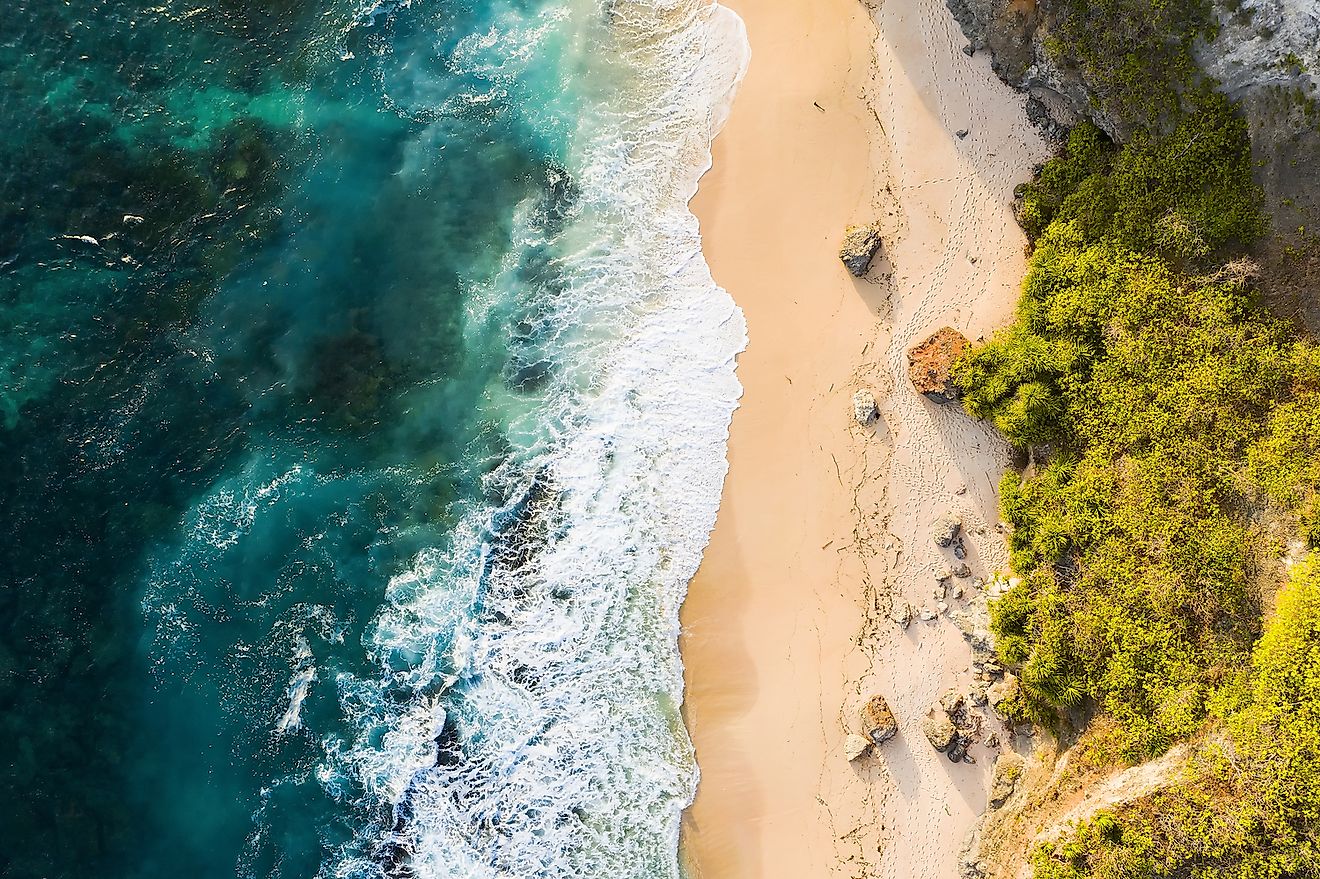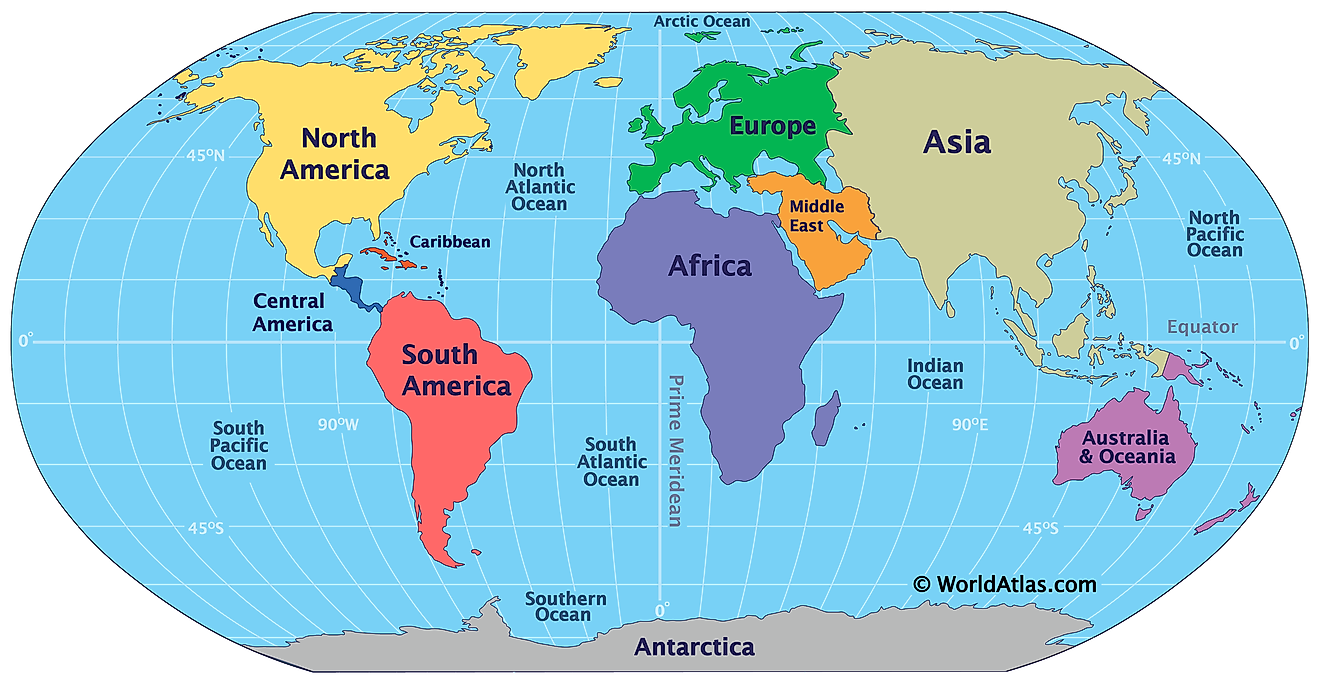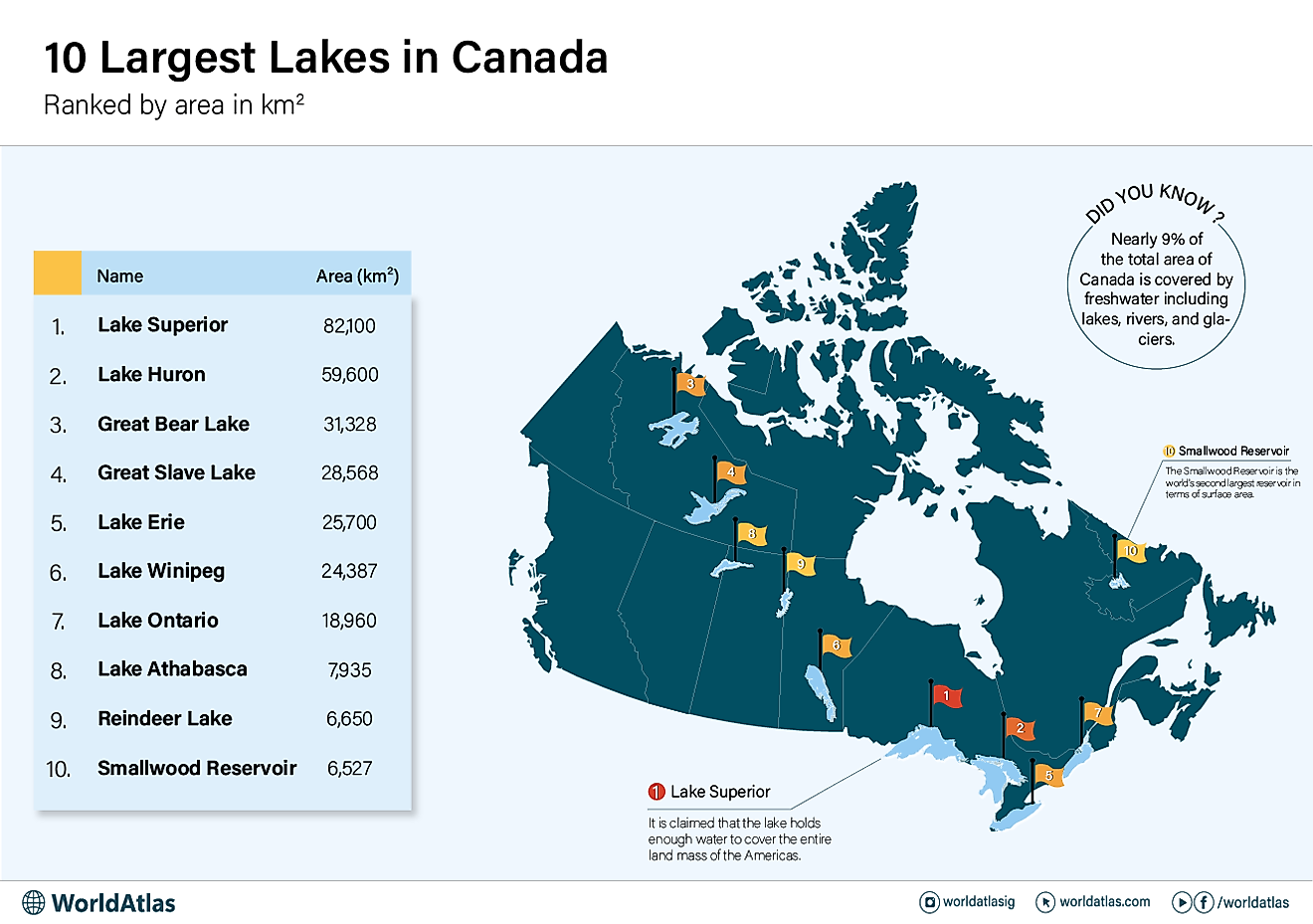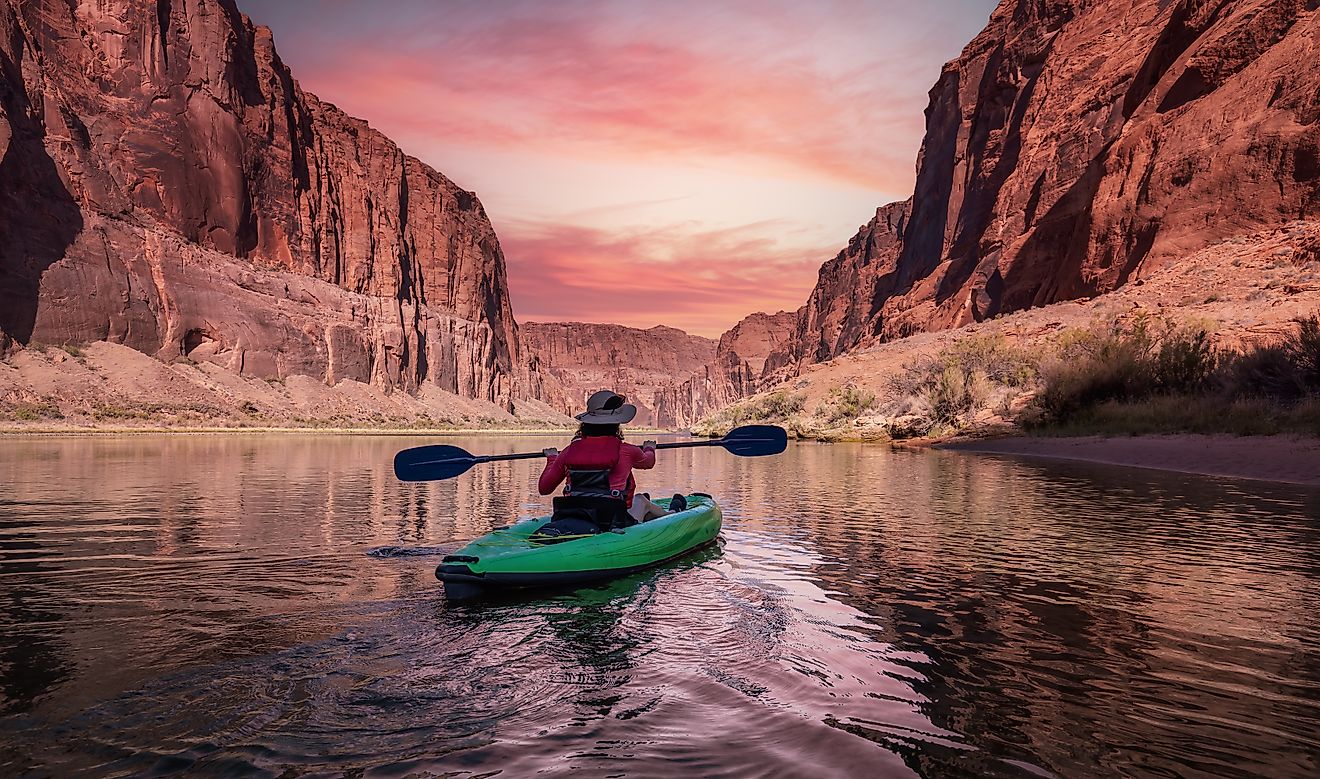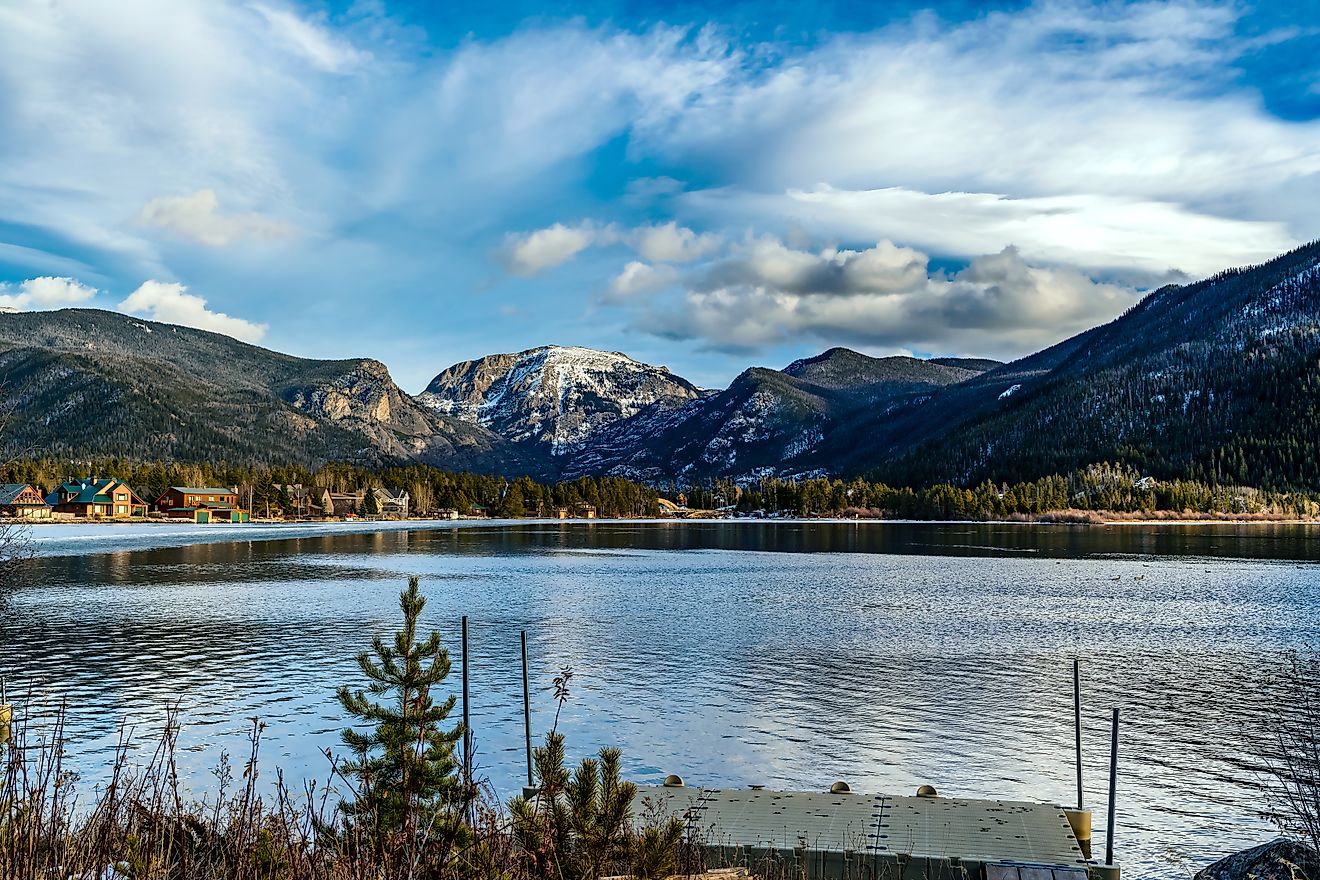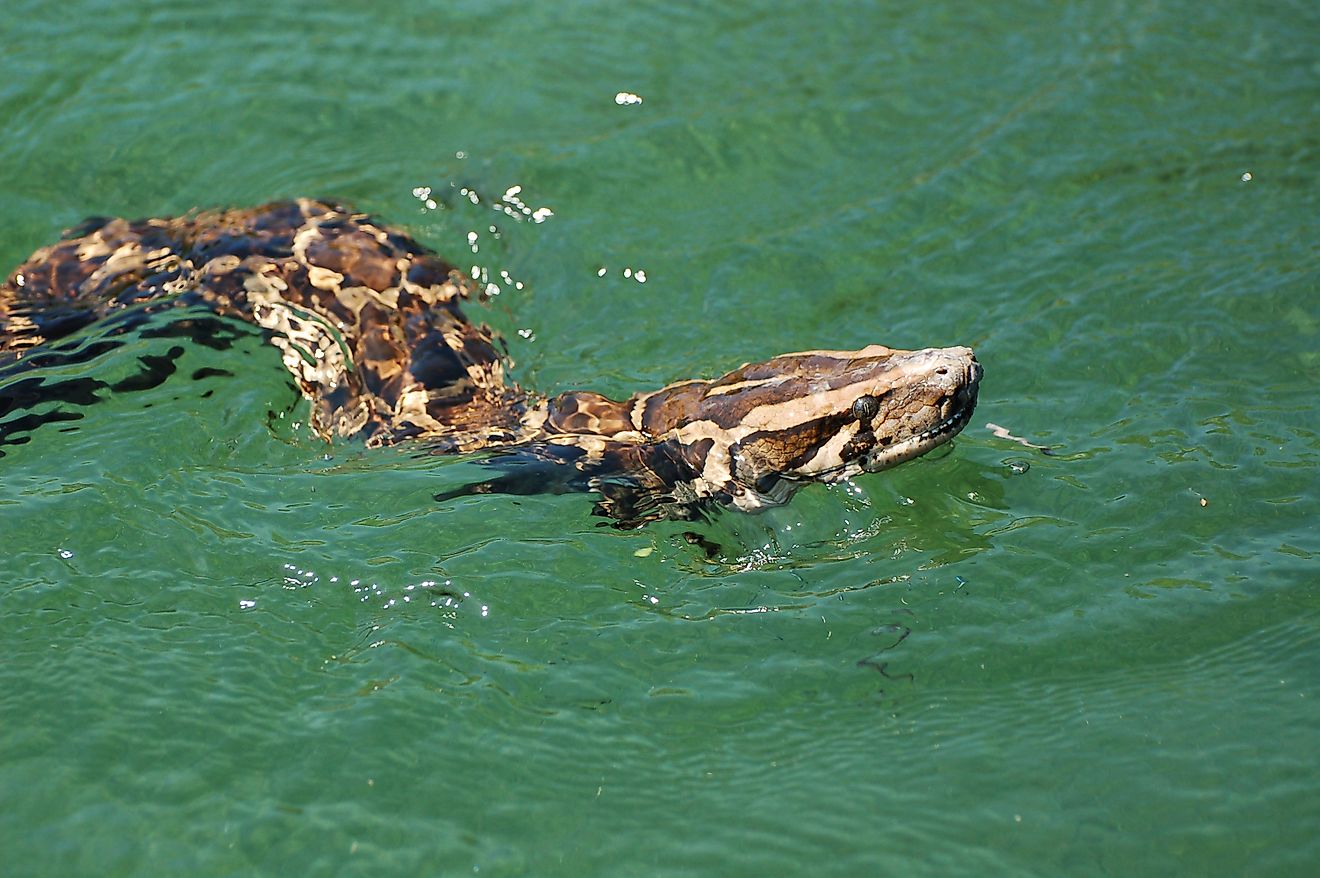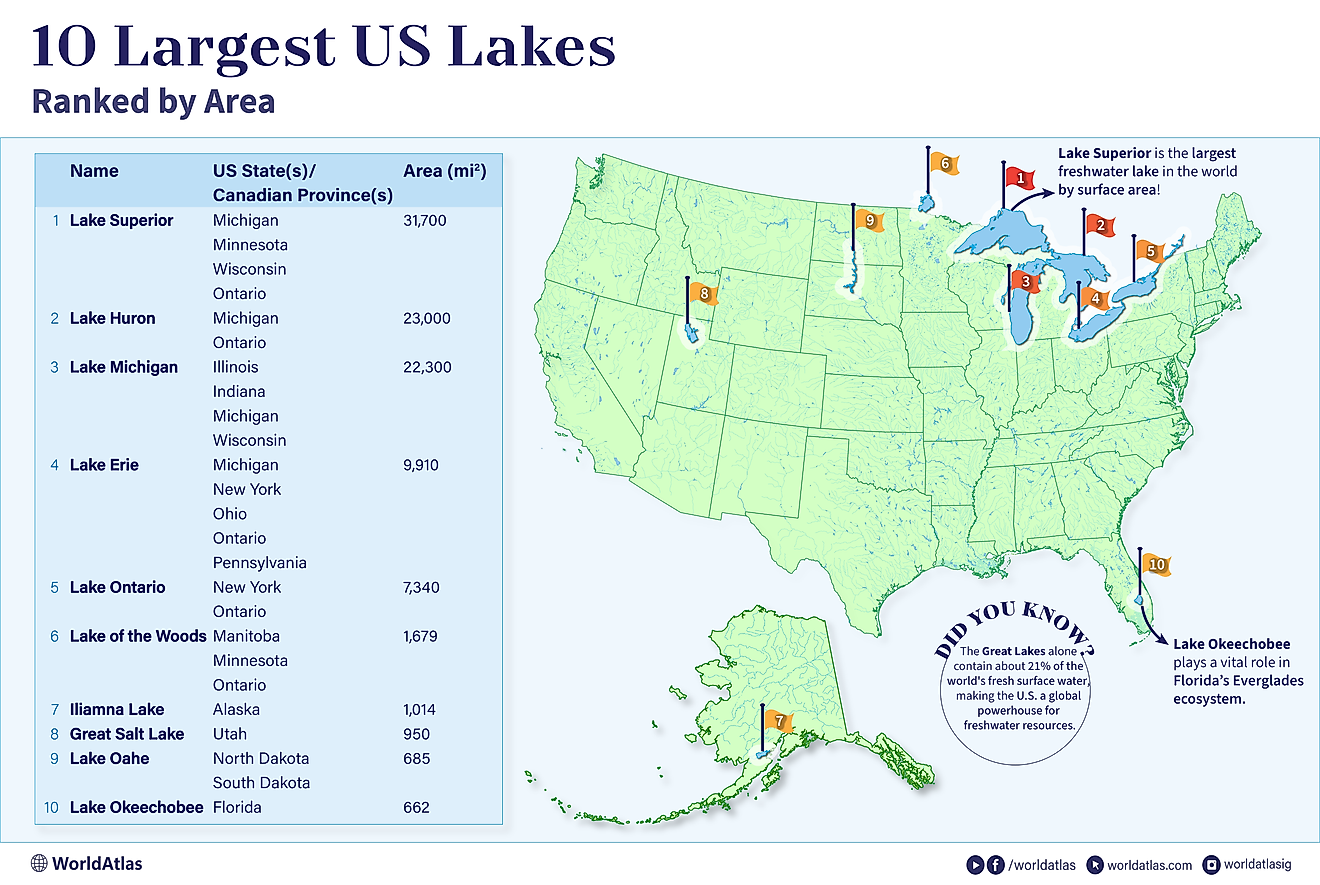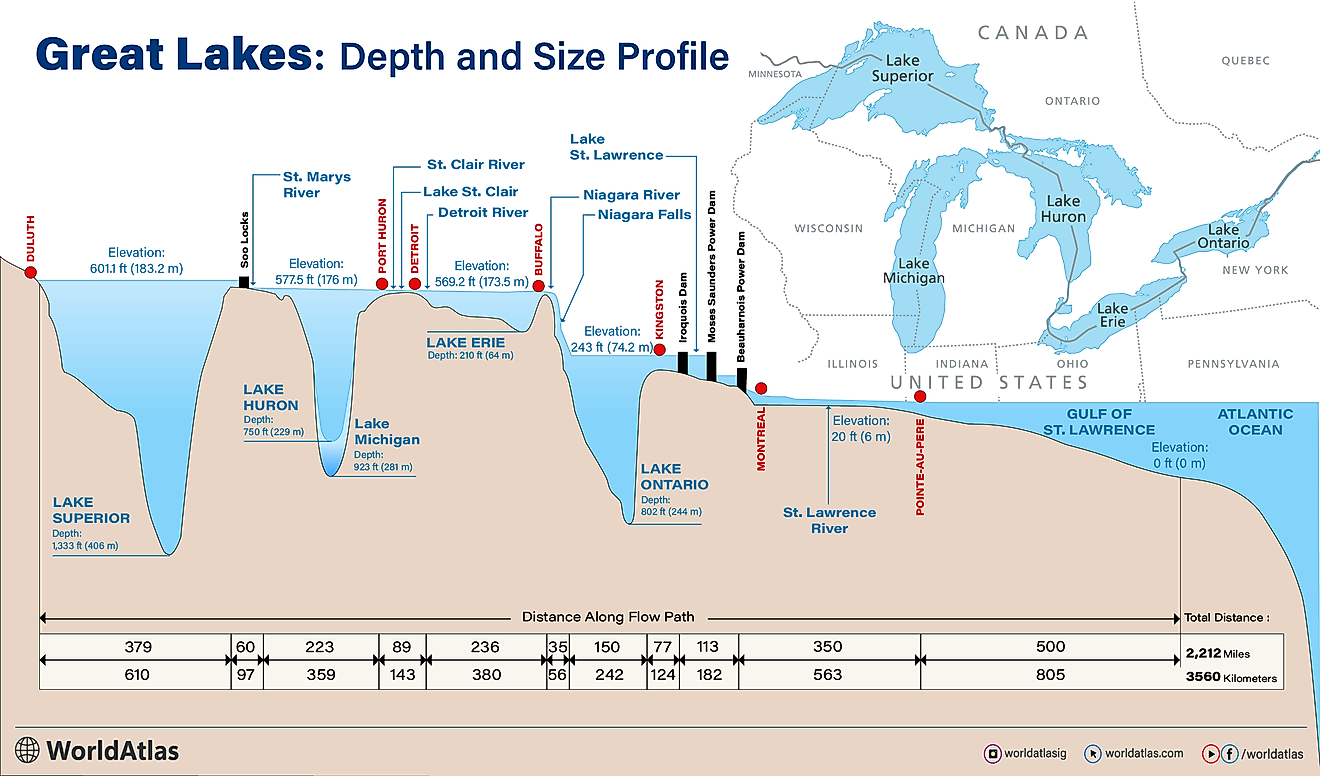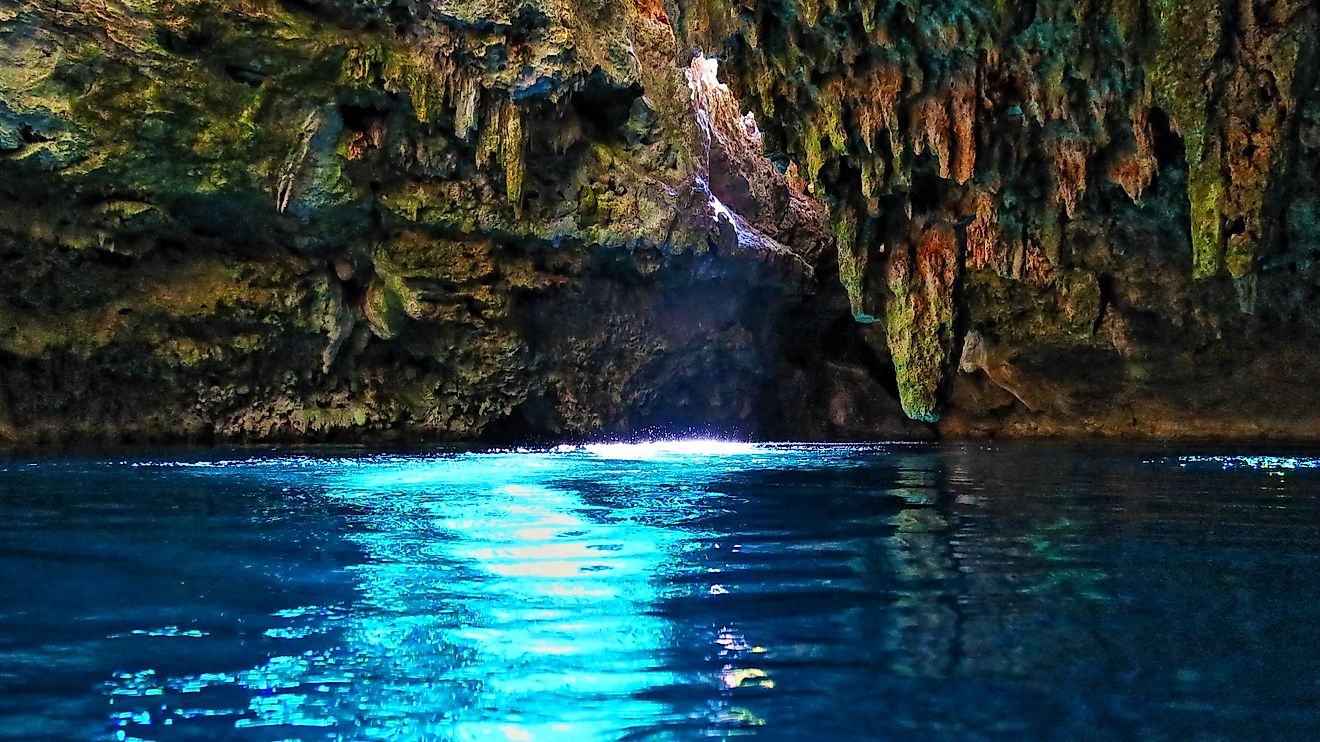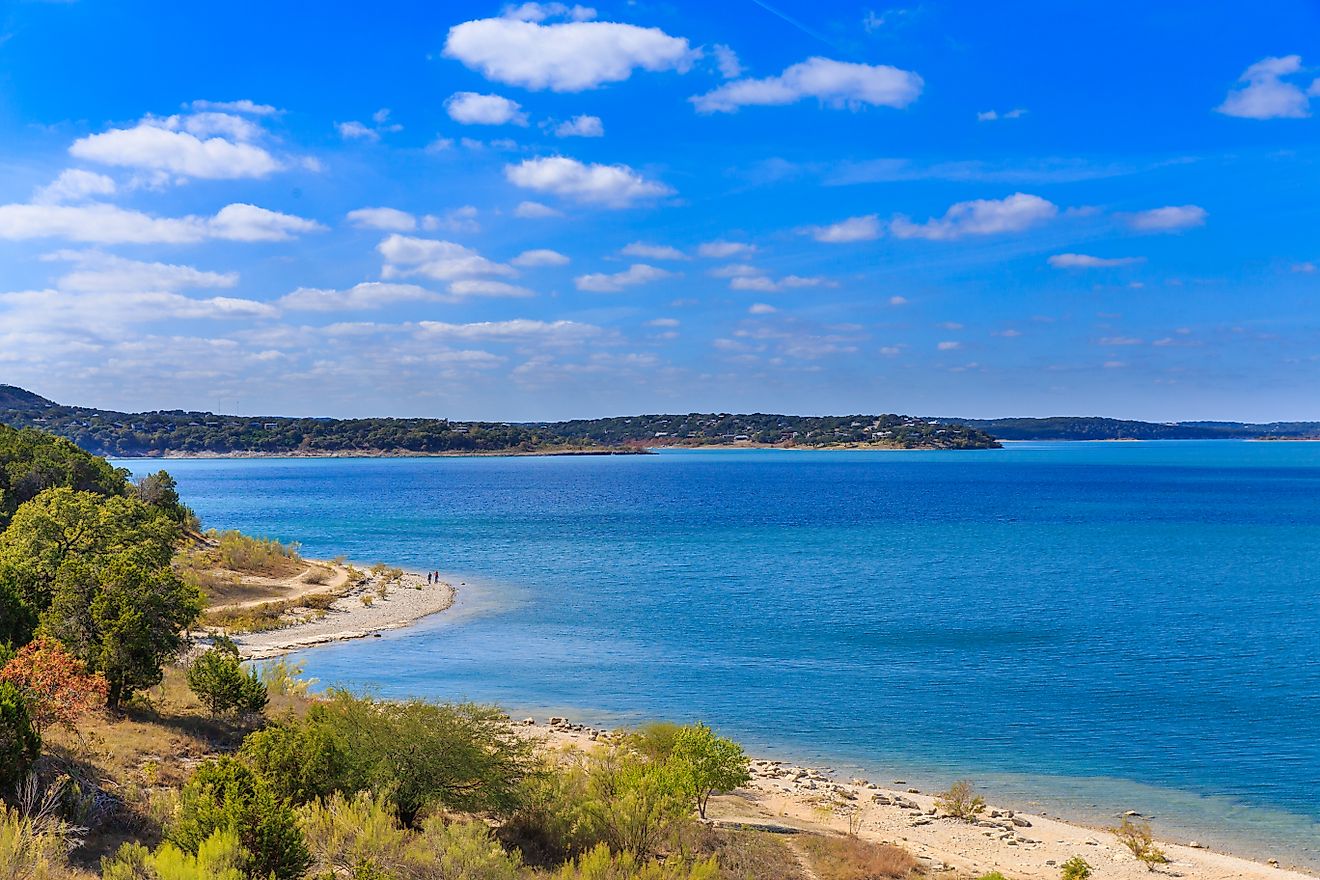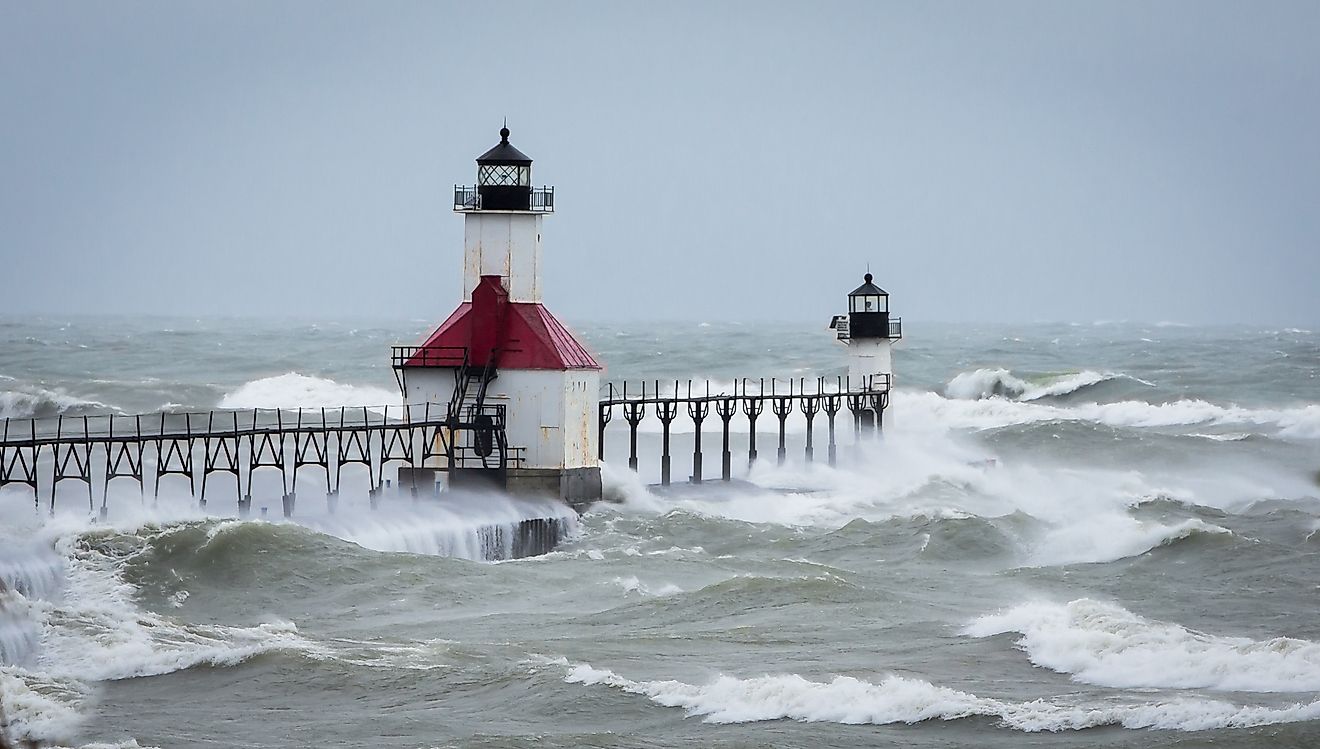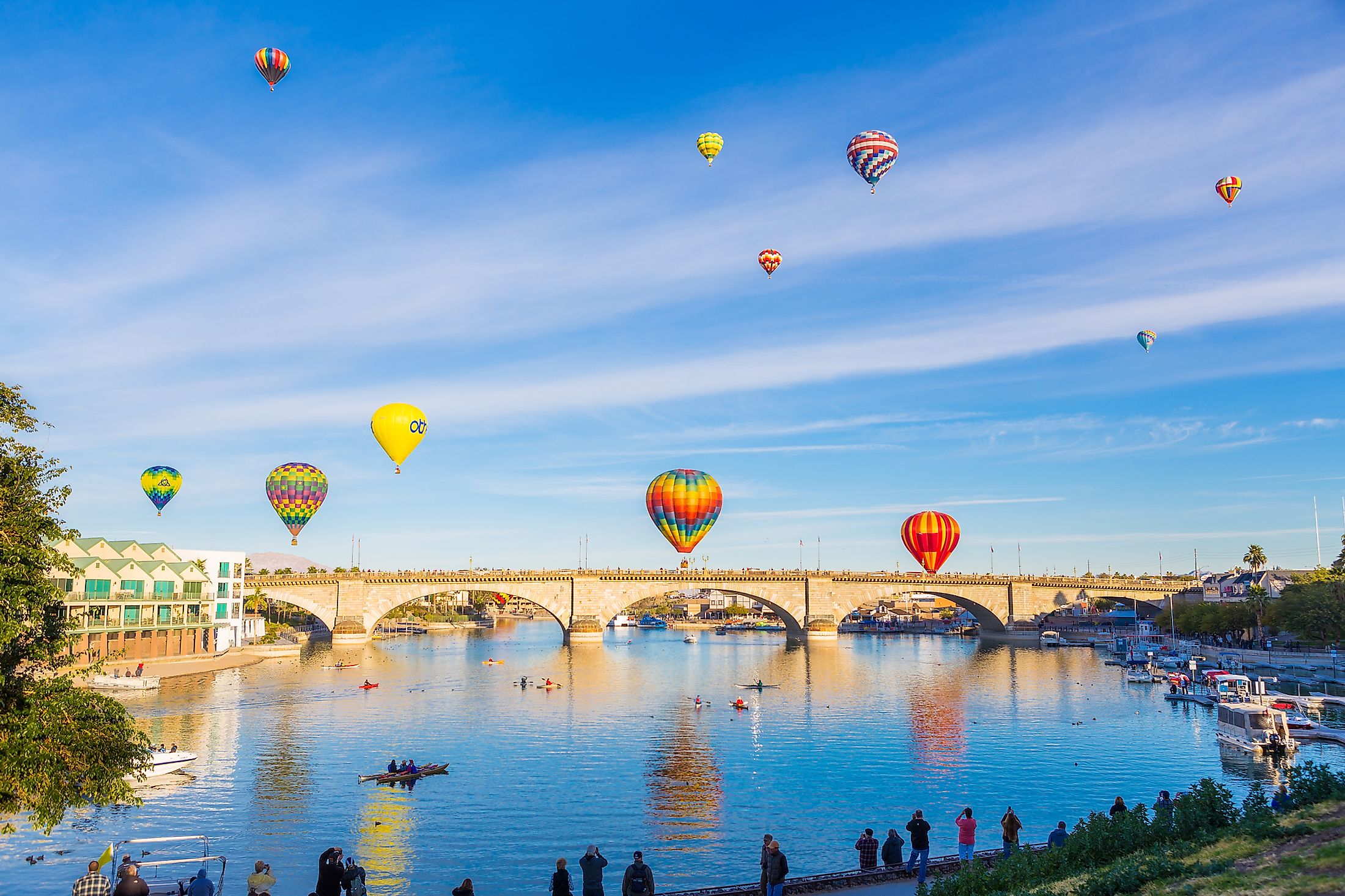
Lake Havasu
Lake Havasu is a human-constructed reservoir lake located between San Bernardino County in California and La Paz County in the state of Arizona. The lake was formed via the Parker Dam, which was build across the Colorado River. This river serves as the main water source - both inflow and ouflow - for the lake. Havasu has a surface area of around 78 km2, and is approximately 4.6 km wide. It also has an average depth of 11 m, but reaches as far as 27 m at its deepest point.
History And Construction
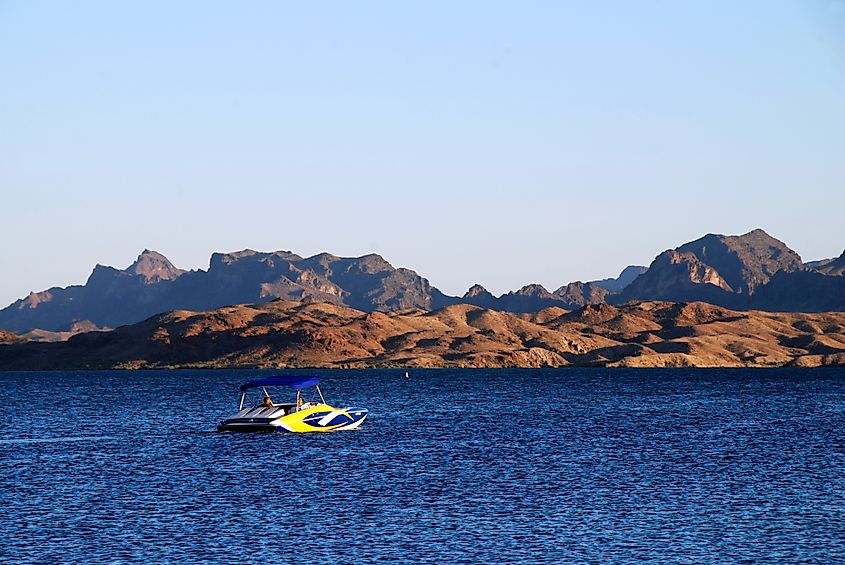
The name Havasu comes from a Mojave word meaning blue. Lake Havasu was created by backing up part of the flow from the Colorado River by way of the Parker Dam. The dam itself was constructed between 1934 and 1938, and the lake was designed to hold up to 764,000,000 m3 of water. The main use of the lake was as a reservoir where water could be stored and later pumped into two different aqueducts: the Central Arizona Project Aqueduct and the Colorado River Aqueduct. The first aqueduct is serviced by the Mark Milmer Pumping plant, while the Colorado River Aqueduct receives water from the Whitsett Pumping Plant, located on the lake itself. This second aqueduct also has three additional pumping plants which are the Iron Mountain, Eagle Mountain and Julian Hinds pumping plants.
Surrounding Landscape
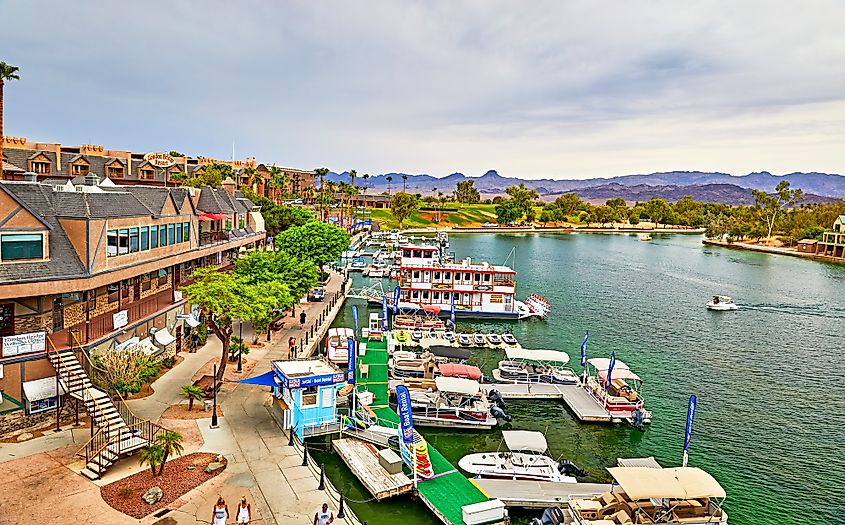
The reservoir of Lake Havasu lies in a predominantly desert landscape. The shores of the lake run along the transitional zone between the Mojave desert and the Sonoran Desert, as well as California’s Colorado Desert. There are also a number of Wildlife reserves in the area surrounding the lake. These include the Havasu National Wildlife Refuge, which crosses the California Arizona border, and Arizona’s Lake Havasu State Park to the east. On the south east side lies the Bill Williams River Canyon, including the Bill Williams River National Wildlife Refuge Wildlife.
Aquatic Life And Other Wildlife
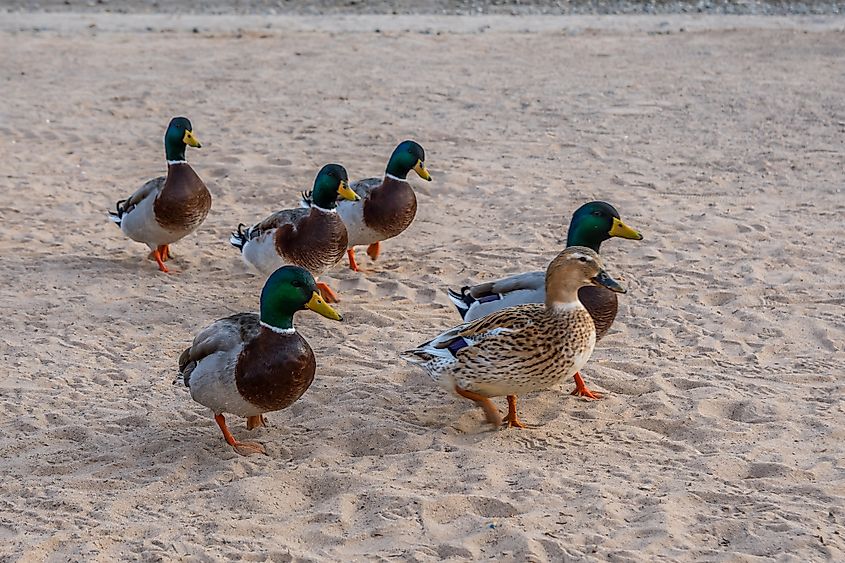
Despite being a constructed reservoir, Lake Havasu is a popular fishing destination. The main type of fish that reside here are bass, including the largemouth, smallmouth and striped bass species. Also present are carp, flathead catfish, channel catfish, crappie, razorback sucker and bothe redear and common sunfish. Increased levels of mercury in several species has led to an advisory against eating any of the fish caught within these waters, however. Aside from the fish, wildlife in the national parks surrounding the lake include a variety of desert dwelling mammals. Larger hunting types include coyotes, foxes, bobcats,and cougars, while the dry rocky terrain is ideal for desert bighorn sheep. Various species of bird can also be found in the region. Common species include the greater roadrunner, as well as the peregrine falcon.
